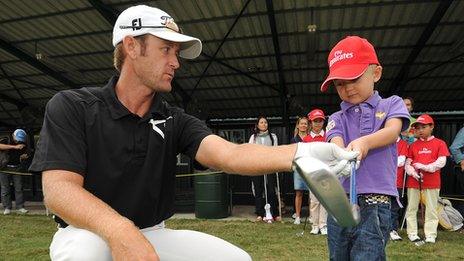Masters 2015: Tiger Woods' comeback will be real test of nerve
- Published
- comments
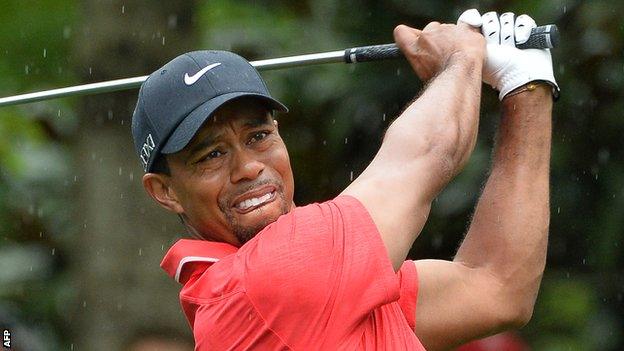
Woods last won the Masters in 2005
Tiger Woods has embarked on countless comebacks but this one will surely be the most demanding.
It will be two months since his last competitive action when he ends a voluntary leave of absence by teeing off at the Masters next week.
This isn't the usual story of recovery from injury, it is a return from a much deeper malaise. Furthermore he is embarking on it on the most high-profile of stages.
Wherever he plays, Woods finds himself the centre of attention but this is magnified to a potentially uncomfortable intensity at the Masters. It's one of those golf tournaments that genuinely transcends.
An embarrassing lack of form prompted Woods, who has four Masters titles among his 14 majors, to take the break that is about to end.
It is now more than a year since the 39-year-old had surgery to alleviate debilitating back trouble and as he embarked on his 2015 season, Woods spoke of his delight at being pain free and able to practise at will.
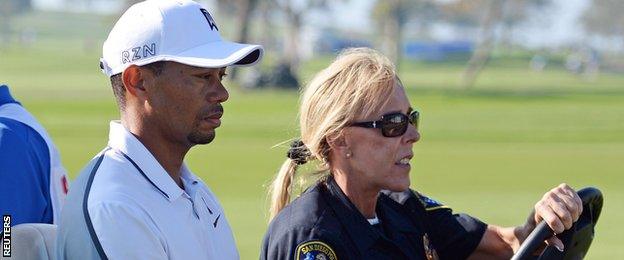
Woods was driven off the course at Torrey Pines on a buggy after he had played 11 holes
Yet his game was all over the place. He shot his worst professional round with an 82 when he missed the cut at Phoenix.
A week later his back seized up and he couldn't get his legs to generate any power through the hitting zone when he made a miserable start at Torrey Pines. He hobbled off after just 11 holes.
That was on 5 February; he had managed just 47 holes before it was time to go back into hiding.
Chris DiMarco, the man Woods beat the last time he won the Masters back in 2005,, external told Golf Channel viewers he thought that injury was just an excuse to get off the course.
"He was embarrassed to be out there," DiMarco said, dismissing Woods' claim that misfiring glutes had forced him to quit. "He wasn't doing anything good, and I think there was something wrong and he couldn't take care of it."
Tiger Woods' incredible Augusta chip
Woods had been trying to bed in a new swing under the tutelage of bio-mechanics expert Chris Como. The idea was to find an action that wouldn't hurt his increasingly fragile frame.
But it came at a cost. Woods lost his short game to an astonishing degree.
Faced by routine chips, there was no guarantee that he would even hit the green, never mind send his ball anywhere near the hole. Chips were chunked short or bladed long.
Once the game's most reliable figure around the greens, Woods had seemingly fallen victim to the psychological curse of the yips.
It's a condition that many coaches believe incurable. Woods' former tutor Hank Haney contends that you have to learn new ways to play the game, eliminating use of the shots that are contaminated by this mental/physical curse.
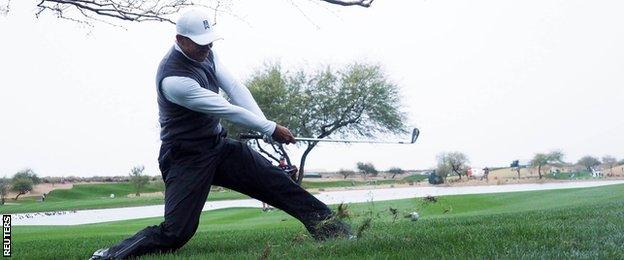
Woods recorded the worst round of his professional career with an 11-over-par 82 in Phoenix
That pragmatic policy will be hard to accomplish at Augusta, a hugely demanding course that puts a high premium on short-game accuracy and imagination.
Woods played a practice round there last Tuesday and is reported to have shot a two-over-par 74 that contained some rather iffy chips. The greens will be much more treacherous once they hit tournament speed.
The first time he faces one of those shots at next week's Masters, the four-time champion's nerve will be tested like never before.
Ten years ago DiMarco was on the receiving end of the extraordinary curling chip-in for birdie on the 16th that helped force a play-off won by Woods.
That was the former world number one at the height of his powers, someone who could seemingly summon golfing genius whenever it was required.
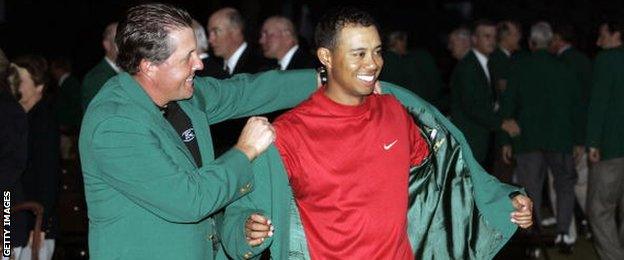
Tiger Woods beat Chris DiMarco in a play-off to win his fourth Masters in 2005
But those days are long gone. Woods is now ranked 104 in the world and as DiMarco observed: "This is a make‐or‐break week for him.
"I thought when I played with him he had the greatest mind ever and he was the strongest mind I've ever seen, but it's getting mental.
"If it doesn't get fixed, I don't know if he can overcome it."
By announcing his return in these circumstances, Woods has ensured he will dominate the agenda in the build-up to the year's first major.
It will be fascinating to see whether he sticks to his usual mantra of saying he's only there to try to win or whether he concedes that his expectation levels have to be somewhat lowered.
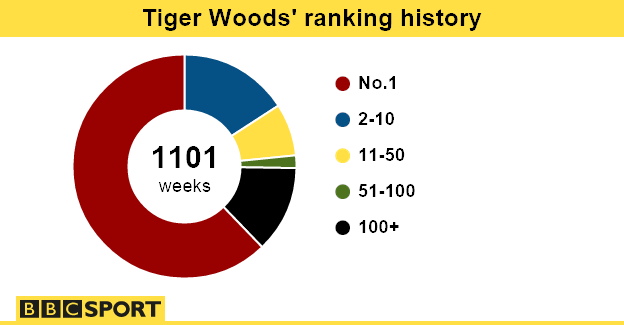
Tiger Woods has spent a record 683 weeks as world number one
That might be the most sensible course of action but it would be counter to Woods' career philosophy.
Either way his return provides another boost to a tournament that was already being eagerly anticipated with world number one Rory McIlroy seeking completion of a career grand slam.
As England's Ian Poulter tweeted: , external"Was it ever really in doubt....Best show on earth just got better."
But the big question is how much better is Woods' golf game following a two-month absence? We and he will only find out once his bid for a fifth Masters title begins on Thursday.
You can listen to coverage of the Masters on BBC Radio 5 live and 5 live sports extra; watch live coverage of the final two rounds on BBC One, BBC Two and BBC Red Button and highlights of rounds on Friday. Follow live updates on BBC Sport Online from 9-12 April.
- Published3 April 2015
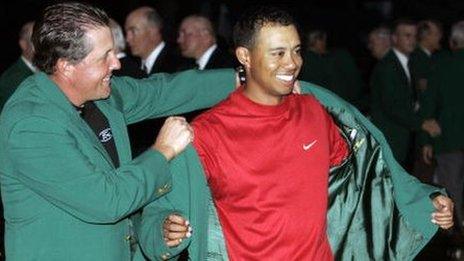
- Published30 March 2015
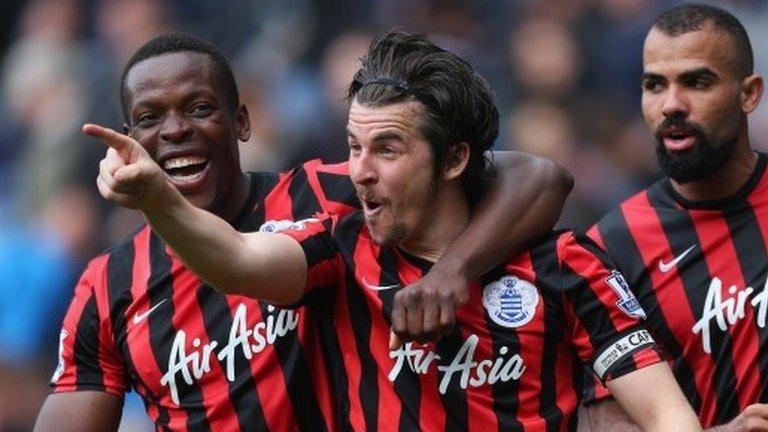
- Published3 April 2015
- Published28 September 2018
